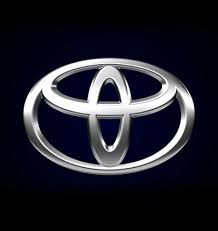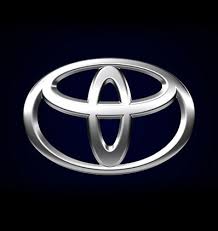
Giving Toyota Motor Corp the option to enter the growing all-electric car market, the Japanese automaker can now safely pack more power at no significant extra cost as engineers at the company say they have tamed volatile lithium-ion battery technology.
Toyota has largely held back adopting lithium-ion battery technology due to concerns over cost, size and safety while rivals including Tesla Motors and Nissan Motor Co began adopting it nearly a decade ago. Lithium-ion batteries have been blamed for incendiary Samsung smartphones and smoking Dreamliner airplanes as they can be unstable.
The automaker has been given the option to produce for an all-electric passenger car market which it has avoided, preferring to put its heft behind hydrogen fuel-cell vehicles (FCVs) as having Toyota endorse lithium-ion will be a fillip for the developing technology.
Lithium-ion batteries, with enough energy to make the car go around 60 kms (37.3 miles) when fully charged before the gasoline engine kicks in would be used in Prius Prime, a soon-to-be-launched plug-in electric version of the world's top-selling gasoline hybrid, Toyota says. The Prime's 60 km range will be listed in the United States as around 25 miles (40.2 kms) because of different methodology in measuring a car's electric mode range.
A chemical combination of nickel, cobalt and manganese is used in many lithium-ion car batteries. These are considered safer than other Li-ion technologies, take a shorter time to charge and store more energy. But if not properly designed, manufactured and controlled, they can still overheat and catch fire.
"It's a tall order to develop a lithium-ion car battery which can perform reliably and safely for 10 years, or over hundreds of thousands of kilometers," said Koji Toyoshima, the chief engineer for the Prius.
"We have double braced and triple braced our battery pack to make sure they're fail-safe ... It's all about safety, safety, safety," he told Reuters.
Even though Toyota did use some lithium-ion batteries from 2009 in its first plug-in hybrid Prius, around the time the first all-electric cars powered by lithium-ion batteries - such as the Tesla Roadster and Nissan Leaf - came on to the mass market, the company has mainly used the more mature nickel-metal hydride batteries to power the motor in the conventional Prius, widely regarded as the forefather of the 'green' car.
Improved control technology that precisely monitors the temperature and condition of each of the 95 cells in its new battery pack is the basis for Toyota's confidence in its battery's safety and stability.
"Our control system can identify even slight signs of a potential short-circuit in individual cells, and will either prevent it from spreading or shut down the entire battery," said Hiroaki Takeuchi, a senior Toyota engineer involved in the development.
Toyota has also improved the precision in battery cell assembly, ensuring battery chemistry is free of impurities, working with battery supplier Panasonic Corp - which also produces Li-ion batteries for Tesla.
A short-circuit could be triggered and overheating and potential explosion can be caused by the introduction of even microscopic metal particles or other impurities.
"The environment where our lithium-ion batteries are produced is not quite like the clean rooms where semiconductors are made, but very close," Takeuchi said.
(Source:www.reuters.com)
Toyota has largely held back adopting lithium-ion battery technology due to concerns over cost, size and safety while rivals including Tesla Motors and Nissan Motor Co began adopting it nearly a decade ago. Lithium-ion batteries have been blamed for incendiary Samsung smartphones and smoking Dreamliner airplanes as they can be unstable.
The automaker has been given the option to produce for an all-electric passenger car market which it has avoided, preferring to put its heft behind hydrogen fuel-cell vehicles (FCVs) as having Toyota endorse lithium-ion will be a fillip for the developing technology.
Lithium-ion batteries, with enough energy to make the car go around 60 kms (37.3 miles) when fully charged before the gasoline engine kicks in would be used in Prius Prime, a soon-to-be-launched plug-in electric version of the world's top-selling gasoline hybrid, Toyota says. The Prime's 60 km range will be listed in the United States as around 25 miles (40.2 kms) because of different methodology in measuring a car's electric mode range.
A chemical combination of nickel, cobalt and manganese is used in many lithium-ion car batteries. These are considered safer than other Li-ion technologies, take a shorter time to charge and store more energy. But if not properly designed, manufactured and controlled, they can still overheat and catch fire.
"It's a tall order to develop a lithium-ion car battery which can perform reliably and safely for 10 years, or over hundreds of thousands of kilometers," said Koji Toyoshima, the chief engineer for the Prius.
"We have double braced and triple braced our battery pack to make sure they're fail-safe ... It's all about safety, safety, safety," he told Reuters.
Even though Toyota did use some lithium-ion batteries from 2009 in its first plug-in hybrid Prius, around the time the first all-electric cars powered by lithium-ion batteries - such as the Tesla Roadster and Nissan Leaf - came on to the mass market, the company has mainly used the more mature nickel-metal hydride batteries to power the motor in the conventional Prius, widely regarded as the forefather of the 'green' car.
Improved control technology that precisely monitors the temperature and condition of each of the 95 cells in its new battery pack is the basis for Toyota's confidence in its battery's safety and stability.
"Our control system can identify even slight signs of a potential short-circuit in individual cells, and will either prevent it from spreading or shut down the entire battery," said Hiroaki Takeuchi, a senior Toyota engineer involved in the development.
Toyota has also improved the precision in battery cell assembly, ensuring battery chemistry is free of impurities, working with battery supplier Panasonic Corp - which also produces Li-ion batteries for Tesla.
A short-circuit could be triggered and overheating and potential explosion can be caused by the introduction of even microscopic metal particles or other impurities.
"The environment where our lithium-ion batteries are produced is not quite like the clean rooms where semiconductors are made, but very close," Takeuchi said.
(Source:www.reuters.com)














